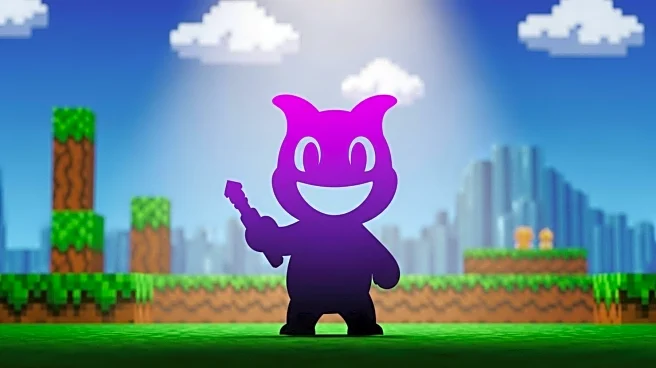What's Happening?
The Department of Homeland Security (DHS) recently released a controversial video on social media platforms, including X (formerly Twitter), which combined clips from the Pokémon anime intro with footage of border patrol agents arresting individuals. The video, captioned with the Pokémon tagline 'Gotta Catch 'Em All!', featured Pokémon cards displaying photos of convicted criminals facing deportation. The post quickly went viral, garnering over 63.7 million views and sparking divided reactions. While some praised its creativity, others criticized it as dehumanizing and inappropriate, especially given the use of a children's franchise to promote immigration enforcement. Nintendo, known for its strict enforcement of intellectual property rights, has not yet responded publicly to the video.
Why It's Important?
The use of Pokémon imagery by DHS raises significant concerns about intellectual property rights and the ethical implications of using a popular children's franchise for political messaging. Nintendo's response could impact its brand reputation and customer relations, especially among fans who may view silence as tacit endorsement of the Trump administration's policies. The situation highlights the broader cultural and political tensions surrounding immigration enforcement in the U.S., and the potential backlash from various consumer groups. Nintendo's decision could set a precedent for how companies handle unauthorized use of their intellectual property in political contexts.
What's Next?
Nintendo has several options, including ignoring the post, filing a copyright complaint with social media platforms, or pursuing legal action against the federal government. Each option carries different risks and potential outcomes, from alienating fans to drawing negative publicity. The company's decision will likely consider the balance between protecting its brand and avoiding political entanglements. The situation may also influence future interactions between corporations and government agencies regarding intellectual property use.
Beyond the Headlines
The incident underscores the ongoing 'culture wars' within the gaming industry, where political messaging can influence consumer behavior and brand loyalty. Companies like Nintendo must navigate these dynamics carefully to maintain their market position and avoid alienating key demographics. The broader implications for intellectual property rights in political contexts could lead to increased scrutiny and potential legal challenges.









